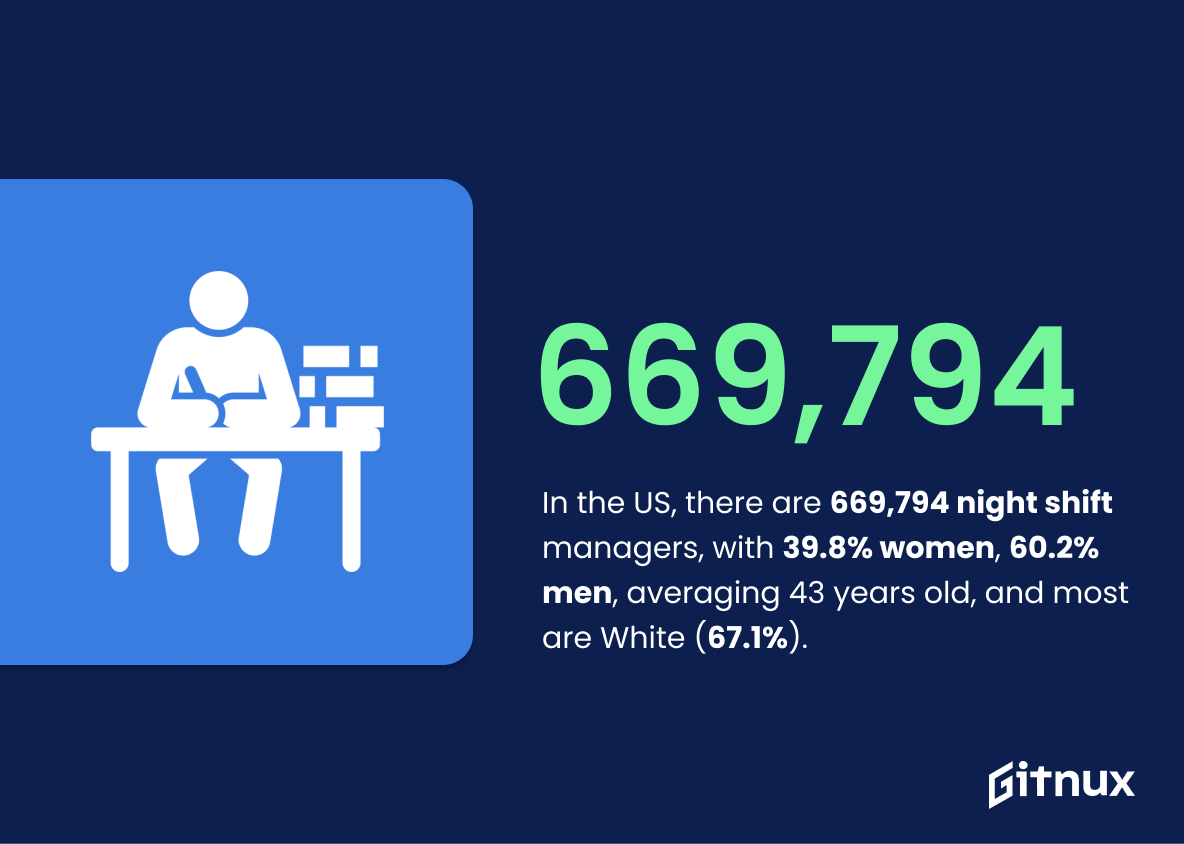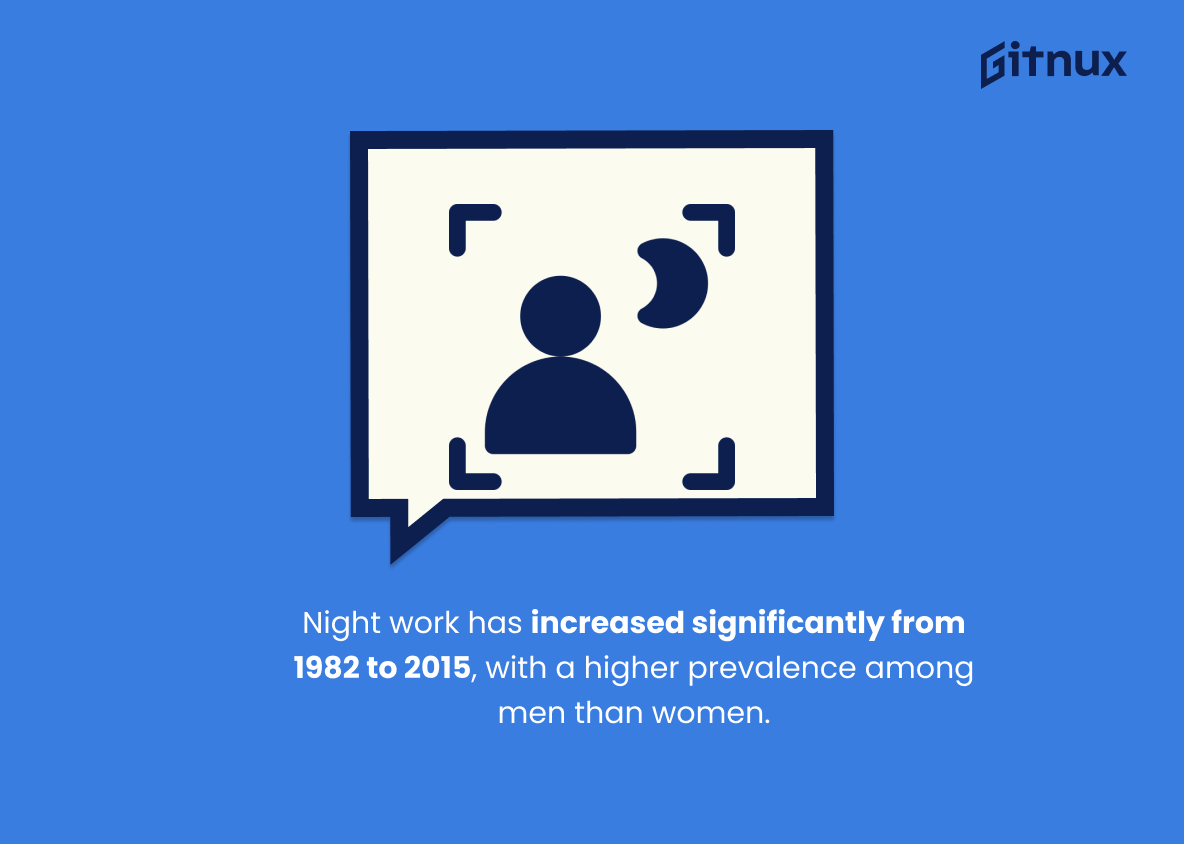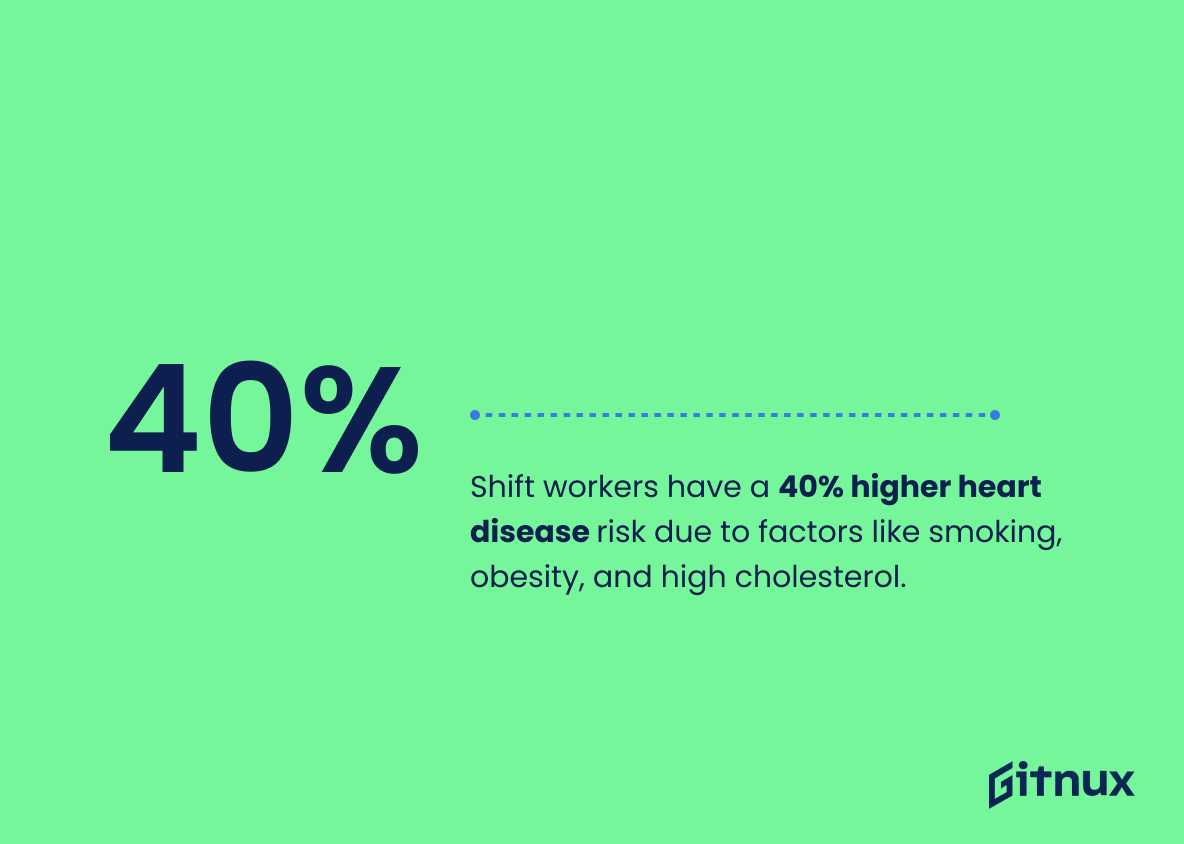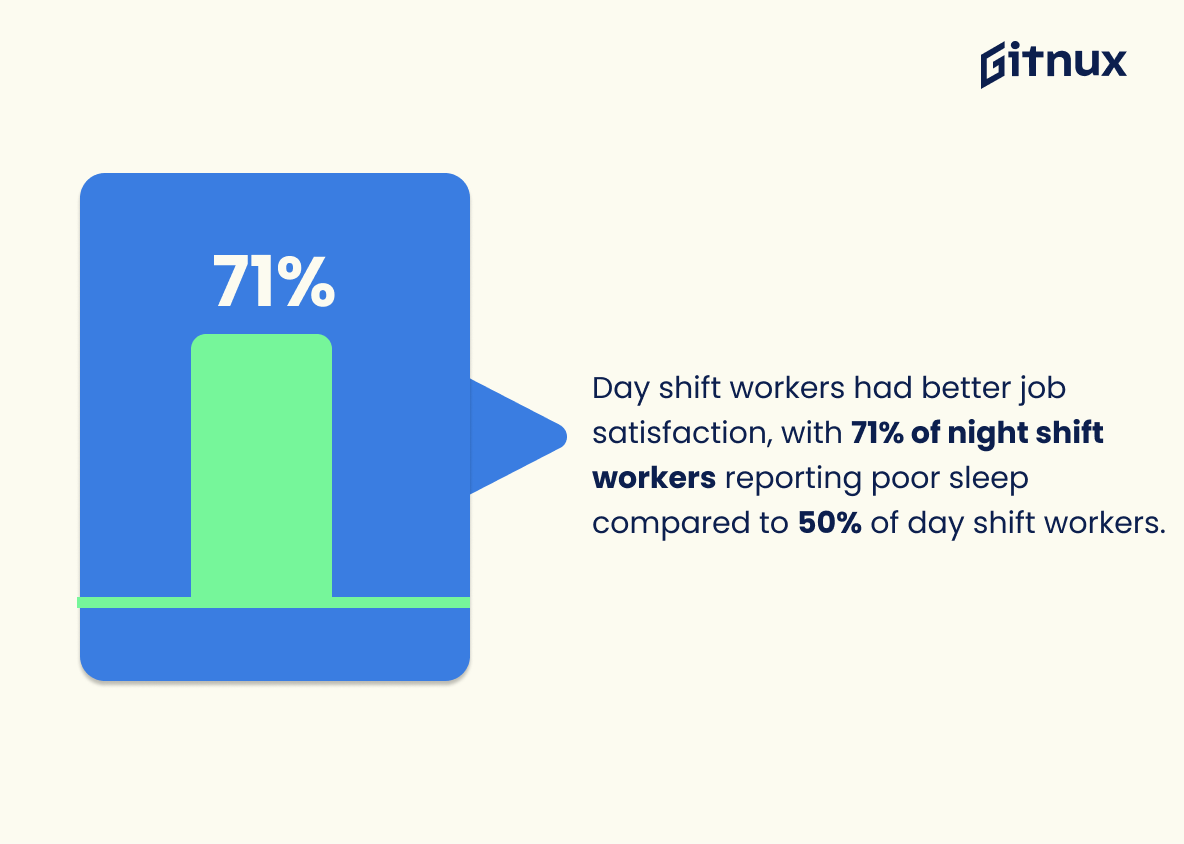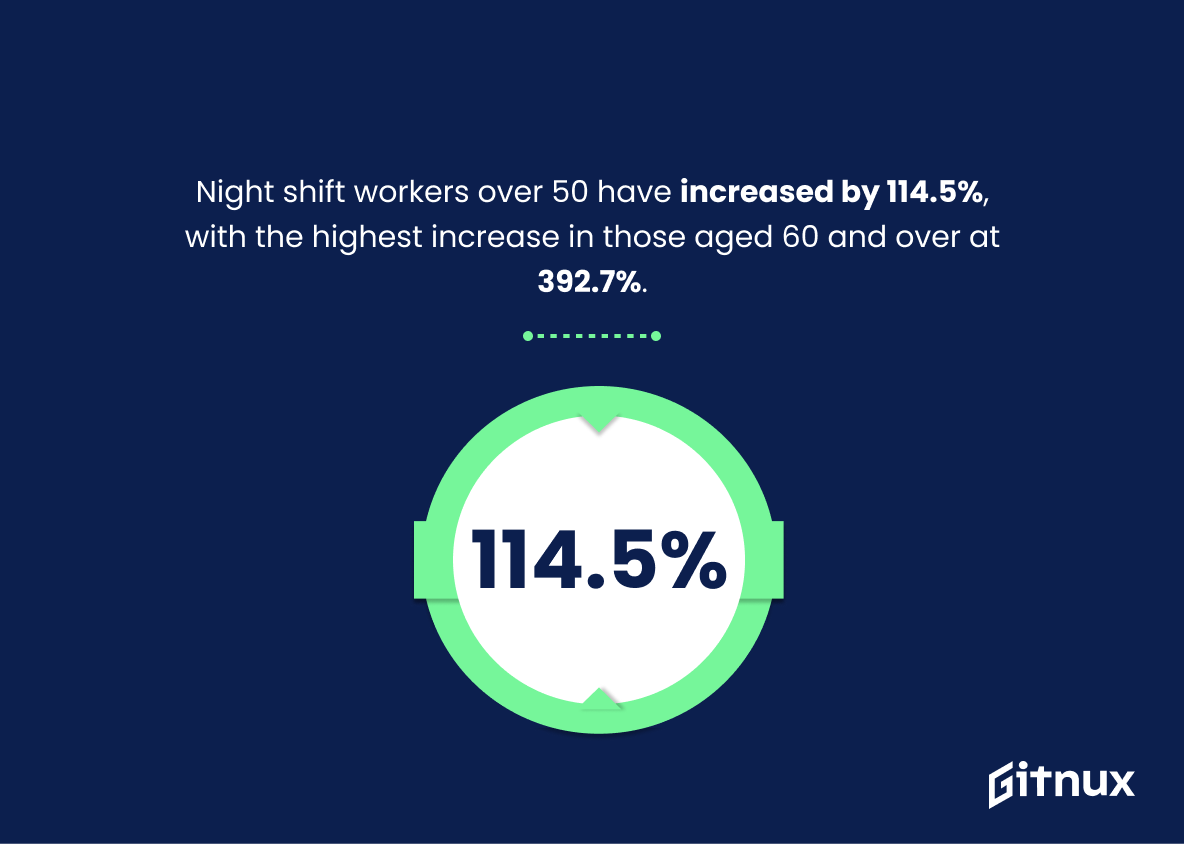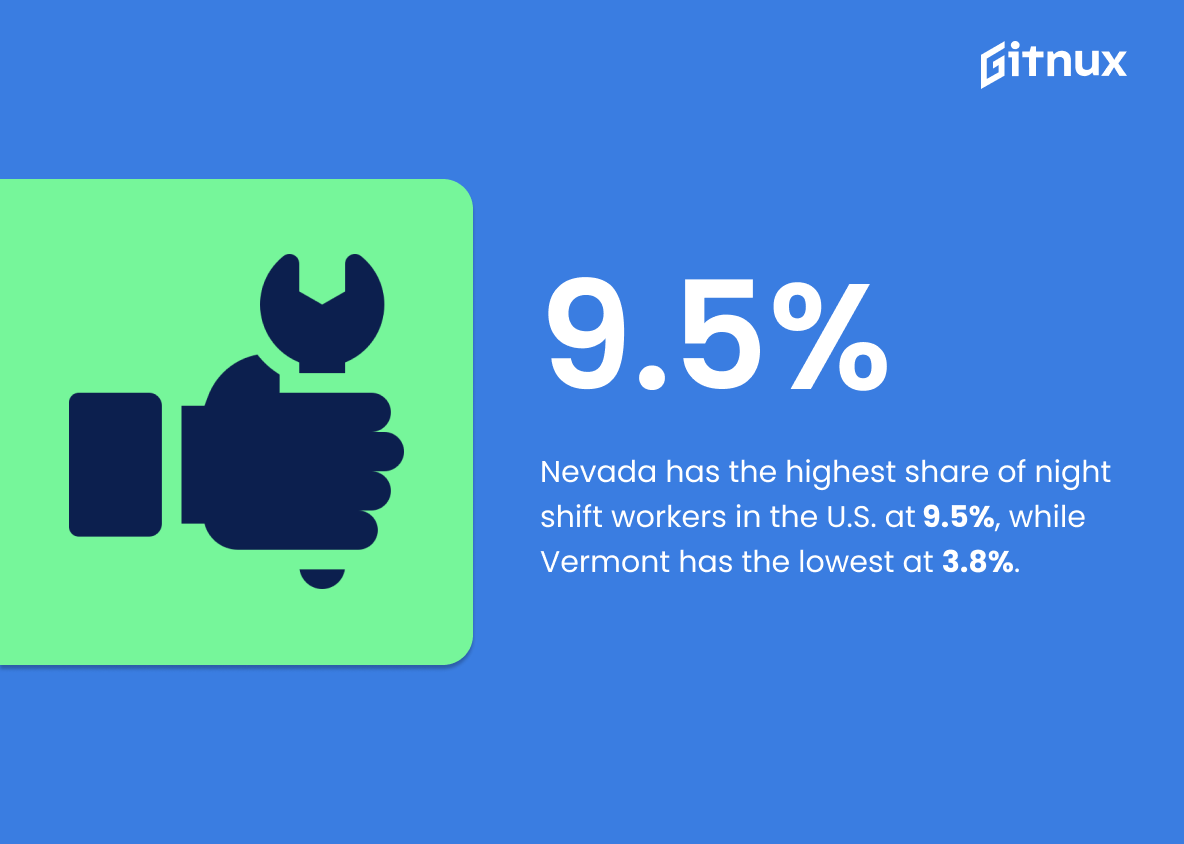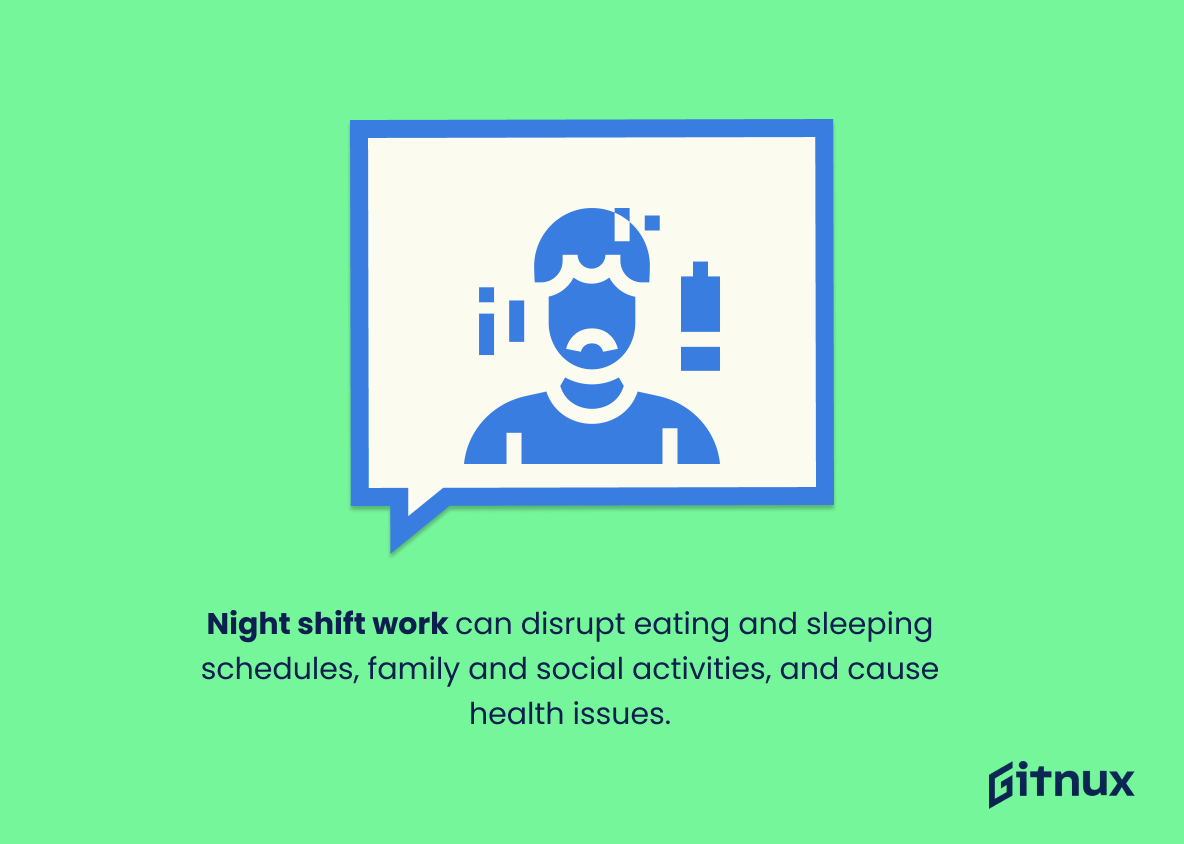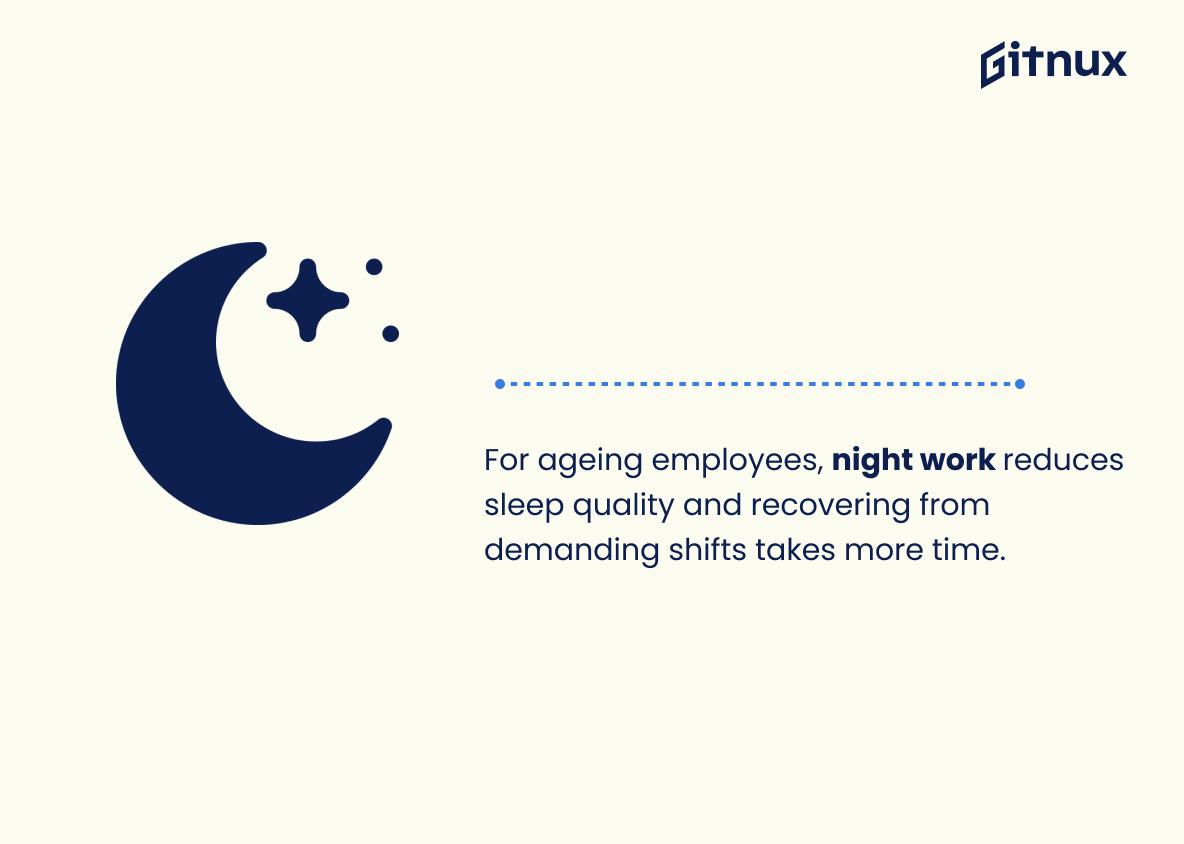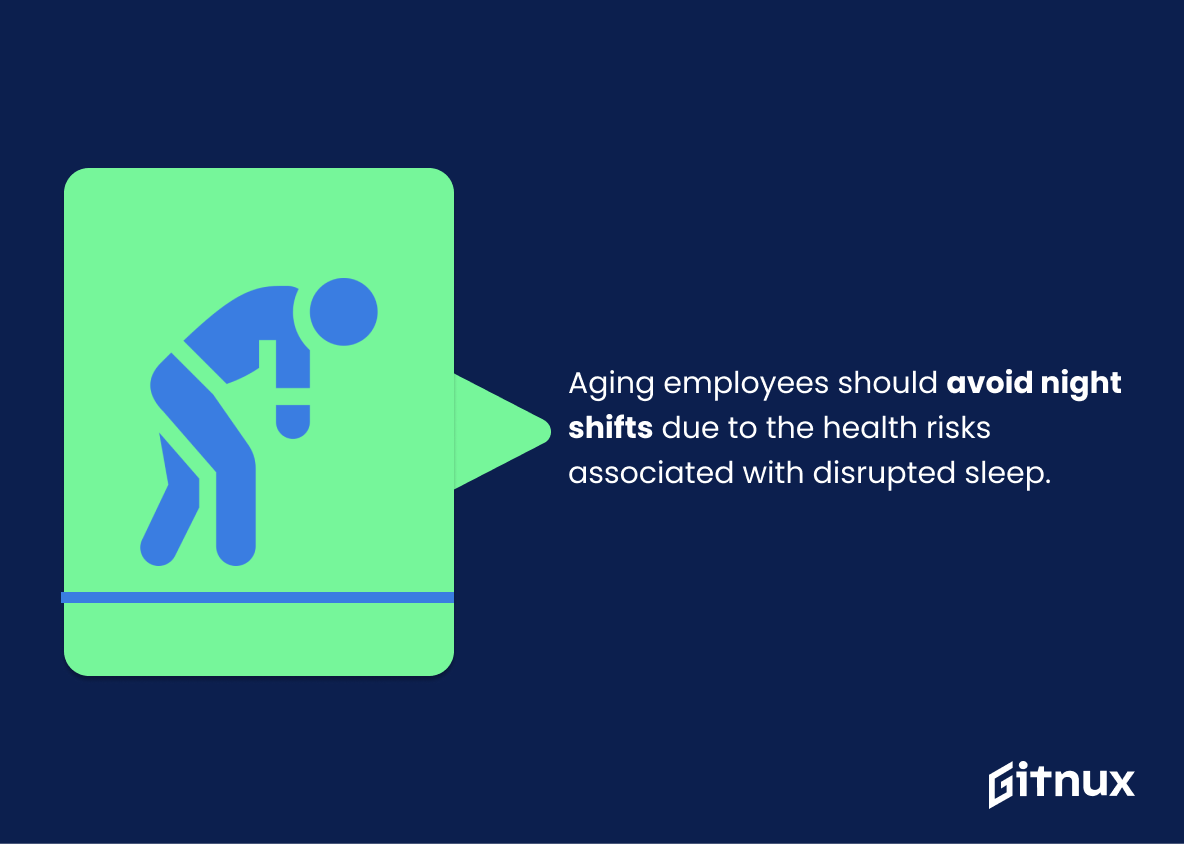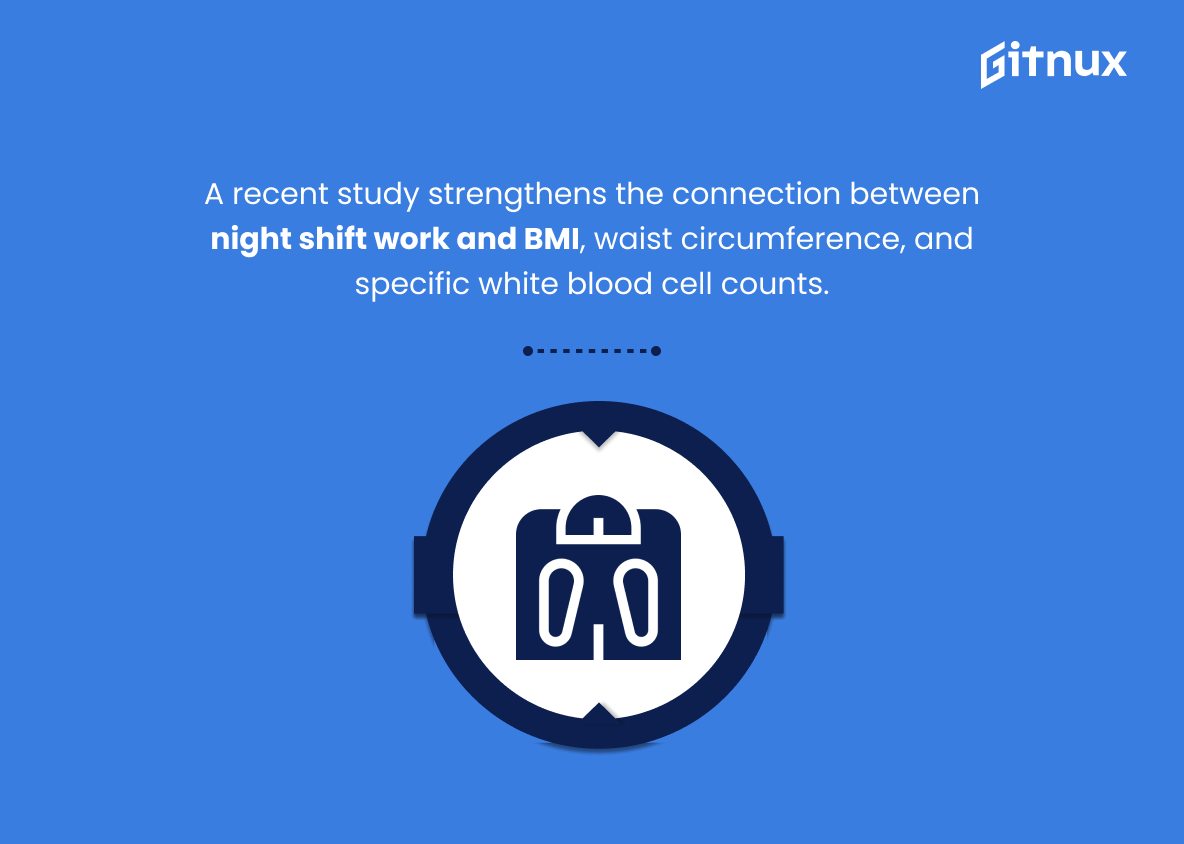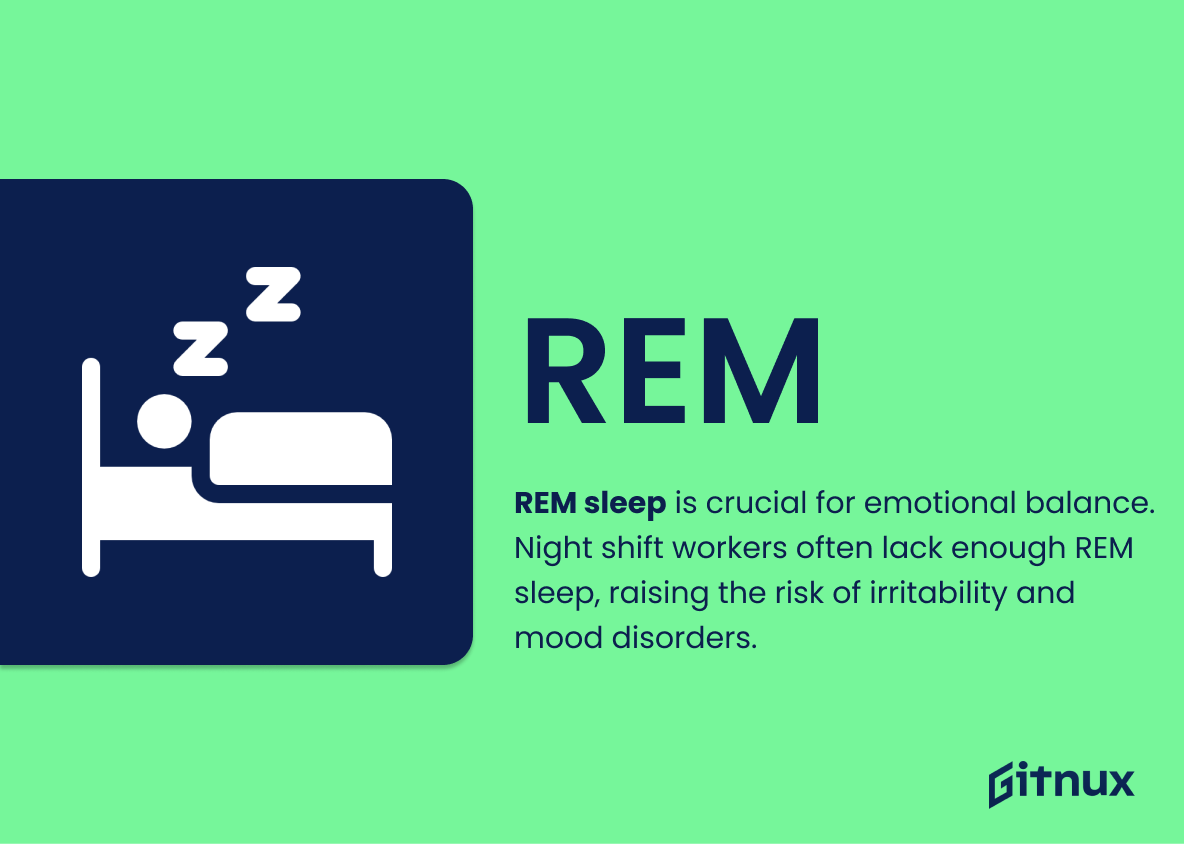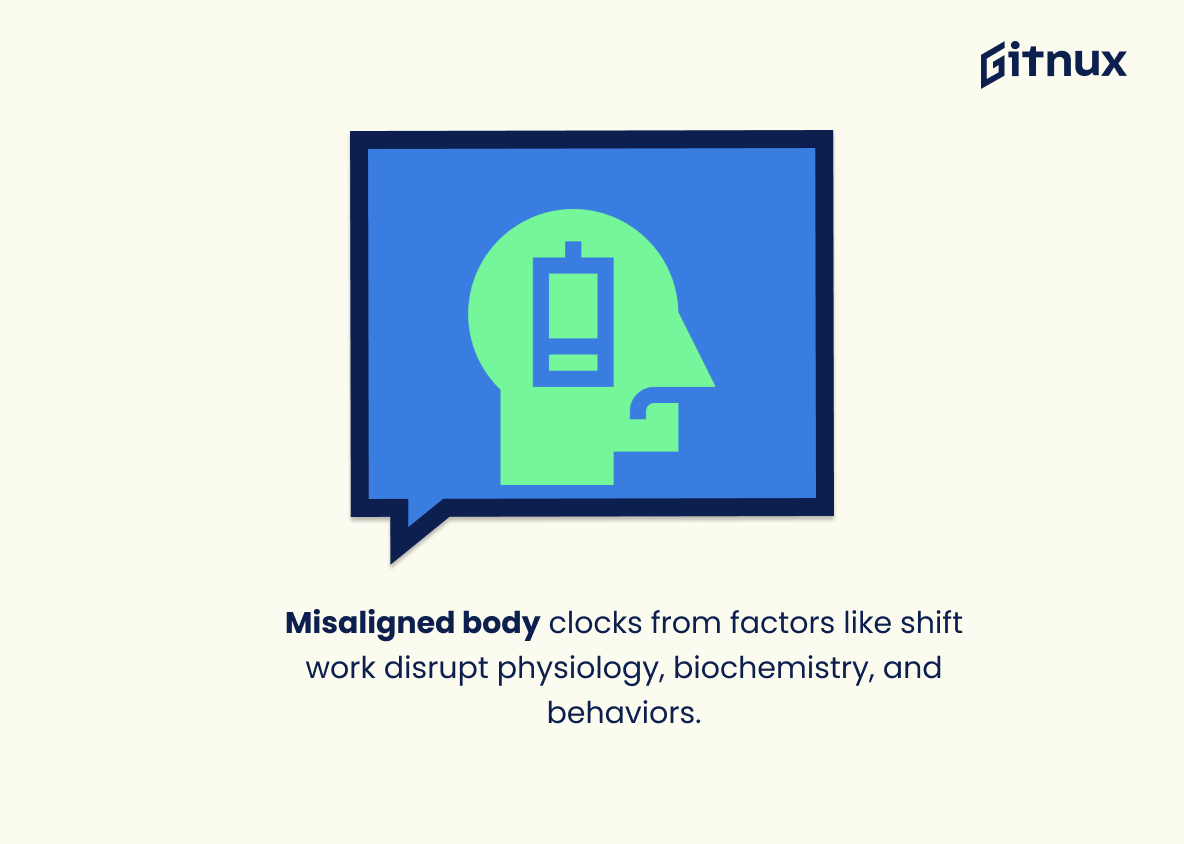Are you a night shift worker? If so, you’re not alone. According to the Bureau of Labor Statistics, more than 15 million Americans work night shifts.
Working the night shift can be challenging, but it can also be rewarding. In this blog post, we’ll take a look at some of the statistics related to night shift work.
Night Shift: The Most Important Statistics
The mean level of job satisfaction was significantly higher among day shift workers than night shift workers, with 71% of night shift workers reporting poor-quality sleep compared with 50% of day shift workers.
Night shift workers over 50 have increased by 114.5%, with the highest increase in those aged 60 and over at 392.7%.
Night Shift: Statistics Overview
Over 669,794 night shift managers are employed in the US, with 39.8% being women and 60.2% being men, with an average age of 43 and the most common ethnicity being White (67.1%).
This statistic provides an overview of the current demographic of night shift managers in the US, which can be used to inform policy decisions and hiring practices.
Night work has increased significantly from 1982 to 2015, with a higher prevalence among men than women.
Health Risks for Night Shift Workers
This increase is largely due to new working arrangements for goods and services production, and has been linked to disruptions in circadian rhythms that may affect health.
Shift workers have a 40% increased risk for ischemic heart disease and are more likely to participate in lifestyle habits that are major cardiovascular risk factors, such as smoking, obesity, and elevated levels of total cholesterol.
It shows that there is a strong correlation between shift work and the development of cardiovascular disorders, which can have serious implications for the health of shift workers.
Job Satisfaction in Night Shifts
The mean level of job satisfaction was significantly higher among day shift workers than night shift workers, with 71% of night shift workers reporting poor-quality sleep compared with 50% of day shift workers.
Here, the negative impact of night shifts on job satisfaction, sleep quality, and overall quality of life has been made visible. It suggests that healthcare organizations should take steps to reduce the stressors associated with night shifts in order to improve the wellbeing of their employees.
See our latest article about Job Dissatisfaction Statistics
The Number of Night Shift Workers
Night shift workers over 50 have increased by 114.5%, with the highest increase in those aged 60 and over at 392.7%.
More and more people are working night shifts past the age of 50. This could be due to the increased demand for social care, as well as the trend towards working past 65. But it could also have implications for the health and wellbeing of these workers, as well as the impact on their families and communities.
Nevada has the highest share of night shift workers in the U.S. at 9.5%, while Vermont has the lowest at 3.8%.
This statistic shows the disparities between different geographic areas in terms of the concentration of night shift workers. This information can be used to inform policy decisions and help employers better understand the needs of their night shift workers.
Disadvantages of Night Shift Work
Night shift work can disrupt eating and sleeping schedules, family and social activities, and cause health issues.
It can also have a major impact on an individual’s health and wellbeing. It can disrupt the body’s natural rhythms, leading to sleep deprivation and other health issues. Furthermore, it can also disrupt family and social activities, leading to further stress and strain on relationships.
Therefore, it is important to be aware of the potential impacts of night shift work and take steps to ensure that it is managed safely and effectively.
Night shifts for age 50+
For ageing employees, night work reduces sleep quality and recovering from demanding shifts takes more time.
Based on new research results, the Finnish Institute of Occupational Health recommends providing employees over 50 years of age with better opportunities to reduce night shifts and long hours.
Aging employees shouldn’t work deminding nightshifts, because it affects their health a lot due to poor sleeping schedule.
Night shift work characteristics are associated with several elevated metabolic risk factors and immune cell counts in a cross-sectional study.
One of the newest studies provides further evidence for the association between night shift work and BMI, waist circumference and leukocytes (including, monocytes, lymphocytes, and basophil granulocytes).
The main aim of the study is to investigate how the frequency of night shifts, duration of working in night shifts and number of consecutive night shifts are differentially associated with metabolic risk factors and immune cell counts.
The study indicated that risk factors appear to be especially increased in night shift workers who had a higher frequency of night shifts (≥ 5 night shifts per month) and worked more consecutive night shifts (> 3 consecutive night shifts).
5 Benefits of Working the Night Shift
Study shows the benefits of swithcing to nights shifts. It covers 5 topics detaily explained by an Aerotek expert. Said benefits are:
- The night shift can pay more
- It gives you flexibility to reduce your cost of living
- Night shift employers can help you make the adjustment
- This kind of shift can put your foot in the right door
The night shift has its challenges, but many people love it. Switching to the night shift can help workers increase earnings and save on childcare and other costs.
Our Work-Life Balance Statistics might also be interesting for you
How Night Shifts Affect Your Body: What You Can Do to Stay Healthy
EM sleep studies show that it is the stage of deep sleep we need to restore our emotional balance. Night shift workers don’t get as much REM sleep as they need, resulting in more significant risks of irritability and mood disorders.
When working in night shifts, irregular sleep and waking cycles stop the correct control mechanisms from functioning correctly.
When our body clocks are misaligned, whether through shift work or other disruptions, that provides for changes in physiology, biochemical processes, and various behaviors.
Night shift work has also been shown to raise the risks of mental health issues such as nervousness, irritability, and anxiety as consequences of stressful working conditions.
Conclusion
In conclusion, night shift statistics can be a useful tool for employers and employees alike. They can help employers understand the impact of night shifts on their employees and make decisions about scheduling and other policies.
They can also help employees understand the risks associated with working night shifts and take steps to minimize those risks.
References
1 – https://www.zippia.com/night-shift-manager-jobs/demographics/
2 – https://bmcpublichealth.biomedcentral.com/articles/10.1186/s12889-022-13830-5
3 – https://www.news-medical.net/health/What-Are-the-Health-Effects-of-Working-Night-Shifts.aspx#:~:text=There%20is%20a%20well%2Destablished,disease%20compared%20to%20today’s%20workers.
4 – https://bmjopen.bmj.com/content/11/9/e046036
5 – https://www.tuc.org.uk/news/number-people-working-night-shifts-more-150000-5-years
6 – https://www.tuc.org.uk/news/older-workers-powering-increase-night-working-tuc-analysis-reveals
7 – https://www.ksjbam.com/2022/03/02/cities-with-the-most-night-shift-workers/
8 – https://www.infographicsarchive.com/which-cities-have-the-highest-percentage-of-night-shift-workers/
9 – https://ms-il.com/night-shift-employee-challenges-and-solutions/
10 – https://blog.camelohq.com/working-night-shift/
11 – https://www.ttl.fi/en/topical/press-release/people-over-50-years-age-should-be-offered-opportunity-reduce-night-shifts-and-long-hours
12 – https://www.nature.com/articles/s41598-022-06122-w
13 – https://www.aerotek.com/en/insights/5-benefits-of-working-the-night-shift
14 – https://healthnews.com/sleep/sleep-hacks/how-night-shifts-affect-your-body-what-you-can-do-to-stay-healthy/
